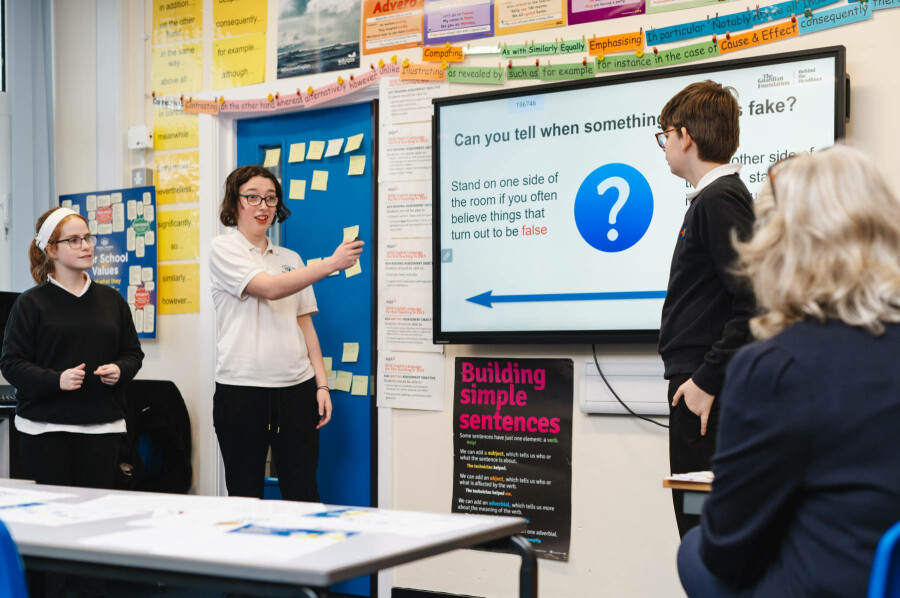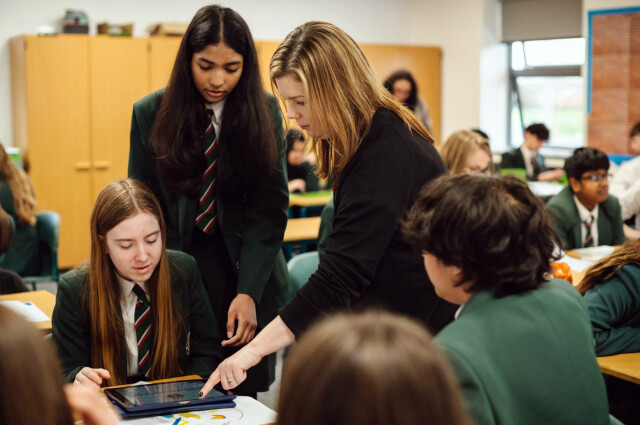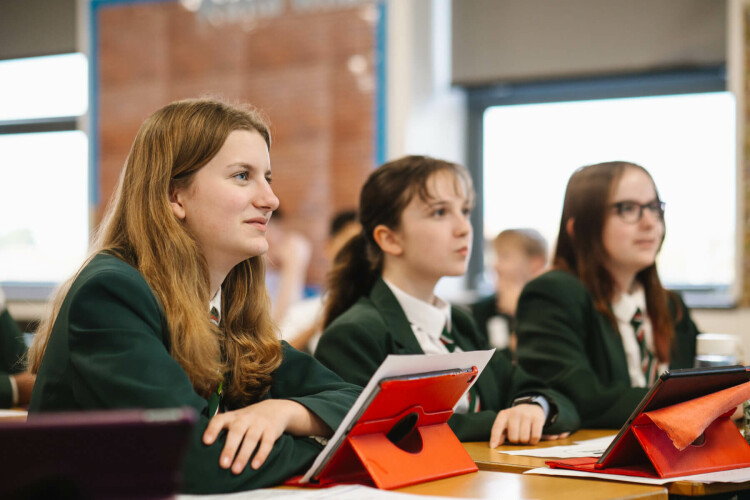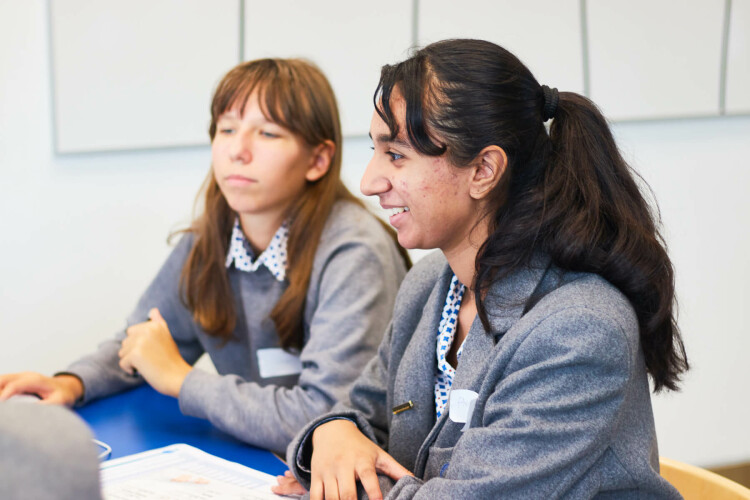False and misleading information affects over 80% of online global citizens who are forming opinions and making decisions not only about who to vote for, but on how they understand the world’s biggest threats; like climate, conflict and cost of living. Navigating our rapidly changing digital world is challenging, and the stakes couldn’t be higher. For young people, whose lives are increasingly lived online, the challenge can be ever greater.
Adding to this, only 11 % of children aged 12-17 are able to correctly identify a genuine social media post, without making a mistake. In order for teachers to tackle this challenge, media literacy needs to be embedded into the curriculum, as well as the development of critical analysis skills amongst students. In light of this The Guardian Foundation Media Literacy Ambassador (MLA) peer to peer programme was devised.
As a schools engagement officer I have had the opportunity to deliver the MLA pilot programme across 31 schools and colleges in central England. The experience of working with a range of teachers and their students has been incredibly rewarding and enjoyable, providing me with a range of perspectives on media literacy. The value of being able to give young people the opportunity to discuss their confidence and apprehension in manoeuvring through the online world, in addition to equipping students with a range of skills to be able to navigate it safely, is not to be underestimated. Throughout the workshops one of the many recurring aspects I have encountered is the eagerness displayed by students to share their insights and debate their opinions of the online world in the classroom with their peers and adults. One of the many benefits of the programme is the opportunity for teachers to provide students with the space and time to learn, discuss and demonstrate their media literacy knowledge through a project that enriches the wider curriculum.



